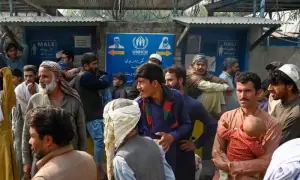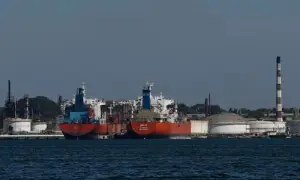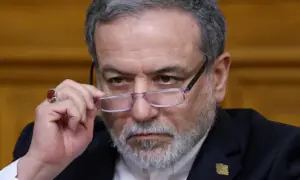Widespread protests erupt in Tbilisi, Georgia over suspension of EU accession talks
3 min readGeorgia is witnessing widespread protests following the government’s controversial decision to suspend its European Union accession talks for four years. The unrest, which began on November 28, has drawn thousands of citizens into the streets, who are expressing their outrage over what they perceive as an authoritarian shift by the ruling Georgian Dream party.
The protests were sparked by Prime Minister Irakli Kobakhidze’s announcement that Georgia would halt negotiations for EU membership after the European Parliament rejected the country’s recent parliamentary election results, citing numerous irregularities. This decision has alarmed many Georgians, who overwhelmingly support EU integration, a goal that has been a cornerstone of the nation’s foreign policy since gaining independence from the Soviet Union in 1991.
The protests have not been peaceful. Demonstrators, many of whom are pro-European, have clashed with police forces in the capital, Tbilisi, where tensions have boiled over into violence. Footage from the protests shows crowds waving EU and Georgian flags, chanting anti-government slogans, and confronting officers guarding the parliament building. In response, police have deployed tear gas and water cannons against the protesters, leading to more than 100 arrests and numerous injuries.
As the protests continue into their fourth day, they have spread beyond Tbilisi, with reports of demonstrations in at least eight other cities and towns across the country. In Khashuri, protesters were seen throwing eggs at the local Georgian Dream office and tearing down the party’s flag. In the Black Sea city of Poti, demonstrators blocked access to the main commercial port, highlighting the growing unrest.
Local residents have described the police response as unusually aggressive.
Public sentiment in Georgia has been largely pro-European, with polls indicating that nearly 80% of the population supports EU integration. Many Georgians harbor deep-seated hostility towards Russia, especially after the 2008 war that resulted in the occupation of about 20% of Georgia’s territory.
Since Russia’s invasion of Ukraine in 2022, the influx of Russian citizens into Georgia has further complicated social dynamics, raising fears of increased Russian influence.
Read more
Eurovision semi-final kicks off with focus on Israeli contestant
The international community has reacted swiftly to the unfolding situation. The US State Department has condemned the excessive use of force by police against protesters and announced the suspension of the US-Georgia Strategic Partnership due to what it described as “anti-democratic actions” by the ruling party.
EU foreign policy chief Kaja Kallas expressed solidarity with the Georgian people, lamenting the ruling party’s signals of moving away from EU integration and democratic norms.
As tensions mount, the Georgian government faces a critical juncture. Prime Minister Kobakhidze defended the decision to delay EU talks, claiming it was a necessary response to “blackmail” from EU politicians. However, this stance has only fueled skepticism among Western allies regarding the ruling party’s commitment to democratic values.
For the latest news, follow us on Twitter @Aaj_Urdu. We are also on Facebook, Instagram and YouTube.
























Comments are closed on this story.